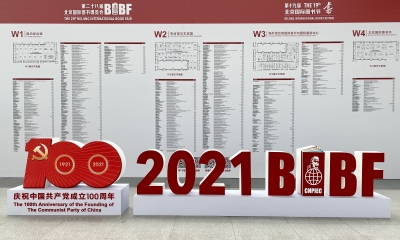Washington Stokes Tensions in the South China Sea

Following Pompeo’s announcement which declared most of China’s maritime in the South China Sea as “completely unlawful,” Washington has launched an “unprecedented” propaganda assault in South East Asian countries against Beijing.
Relations between China and the United States have been deteriorating for some time, but have now entered dangerous territory, analysts believe.
US Secretary of State Mike Pompeo announced on July 13 that Washington now considers most of China’s maritime claims in the South China Sea as “completely unlawful” — breaking with the White House’s previous neutrality on disputes in the region, and setting the stage for potential military escalation.
Beijing flatly rejected Pompeo’s claims, asserting “China has never sought to establish a maritime empire in the South China Sea and has treated neighboring countries equally.”
In a statement, the Chinese Embassy in the US accused the State Department of “deliberately distorting the facts and international law.” It added that the US “exaggerates the situation in the region and attempts to sow discord between China and other littoral countries.”
Zhang Mingliang, a South China Sea expert at Jinan University in Guangzhou, noted that acrimony between China and the US over the South China Sea had taken tensions “to an unprecedentedly high level”.
In alleging China’s maritime claims as “unlawful”, Pompeo resorted to the UN Convention on the Law of the Sea (UNCLOS). However, the US is not a signatory country to the convention. He also referred to the South China Sea Arbitration Case, without noticing the fact that the Tribunal making the arbitration has nothing to do with the UN, nor with the International Court of Justice in the Hague and thus has no jurisdiction.
Sowing discord
Following Pompeo’s announcement, the US has launched “an unprecedented” propaganda assault in South East Asian countries against Beijing.
“After Washington last week hardened its position by explicitly rejecting Chinese maritime claims in the South China Sea, US embassies in the region produced an unprecedented flurry of op-eds and statements criticizing Beijing’s actions,” Reuters reported.
“US embassies in Thailand, Malaysia, the Philippines and Cambodia followed up with comments on Facebook and in editorials in local news outlets saying that Beijing’s actions fitted a pattern of encroachment on others’ sovereignty.”
As part of Washington’s coordinated propaganda drive to weaken relations between China and neighboring countries, the US concocted tailor-made messages playing on countries fears and desires.
The embassy in Yangon accused China of interfering in Myanmar, citing investments it said could become debt traps, and levelling sensationalist claims regarding the trafficking of women as well as the inflow of drugs.
Meanwhile, the US embassy in Manilla attempted to court the Philippines through flattery and promises of riches. In a statement titled “The Philippines’ Future Floats in the West Philippine Sea,” US Ambassador Sung Kim sought to entice Manilla into conflict with Beijing by listing the rich offerings of the South China Sea and pledging Washington’s backing if Manilla wished to explore them.
“The waters of the South China Sea are home to a dizzying array of marine resources, ranging from vast oil and gas reserves deep beneath the surface to the complex and beautiful ecosystems capable of supporting international seafood markets,” Sung seemingly whispered.
Clearly, such acts are demonstrably inconsistent with a country that claims to want peace.

Mounting US military provocation
While laboring to stoke tensions between China and neighboring countries, Washington has significantly increased its military presence in the region.
In a move described as “rare” by military analysts, the US Navy recently dispatched two aircraft carriers and several accompanying warships to the South China Sea.
Washington sought to downplay the presence of the USS Reagan and USS Nimitz Carrier Strike Groups in the strategic waters as just another “routine” operation, though few outside the White House appeared convinced.
“The deployment of an American aircraft carrier and its strike force is often used as a signal to deter adversaries,” observed New York Times diplomatic correspondent Lara Jakes. “Deploying two at once is recognized as a significant show of force.”
That the “dual carrier operations” coincided with pre-panned Chinese military drills in the region, only serves to highlight the fact that Washington’s intentions are far from benign.
Analysts believe Washington’s hardened position regarding China’s maritime claims in the South China Sea could lead to a dramatic military build-up and a significant increase in “provocative” US Freedom of Navigation Operations (FONOP’s).
Under the Trump administration, FONOP’s in the South China Sea have increased dramatically. Last year, the US Navy conducted nine FONOP’s in the region — up from five in 2018. This year, Washington further increased FONOP’s, conducting two in just two days.
The irony is that whilst Washington accuses Beijing of militarizing the South China Sea, the US is doing exactly that under the pretext of preventing militarization.
Ongoing talks between China calls and ASEAN countries
Given Washington’s tendency towards militarization in the South China Sea, Beijing has called on neighboring countries to remain vigilant and work together to jointly safeguard regional peace and stability.
China has pledged to continue working with ASEAN countries to deal with maritime issues on a basis of dialogue and consultation and to conclude the South China Sea Code of Conduct (COC) at an early date.
Beijing has further underscored its commitment to resolving disputes on territory and jurisdiction within the framework of the South China Sea Declaration on Conduct (DOC) reached by China and ASEAN in 2002.
A calm and tranquil South China Sea is in the interest of China and all its neighbors. It is therefore up to China and ASEAN countries to firmly reject unwanted external interference and overcome their maritime and territorial disputes amongst themselves.
 Facebook
Facebook
 Twitter
Twitter
 Linkedin
Linkedin
 Google +
Google +







